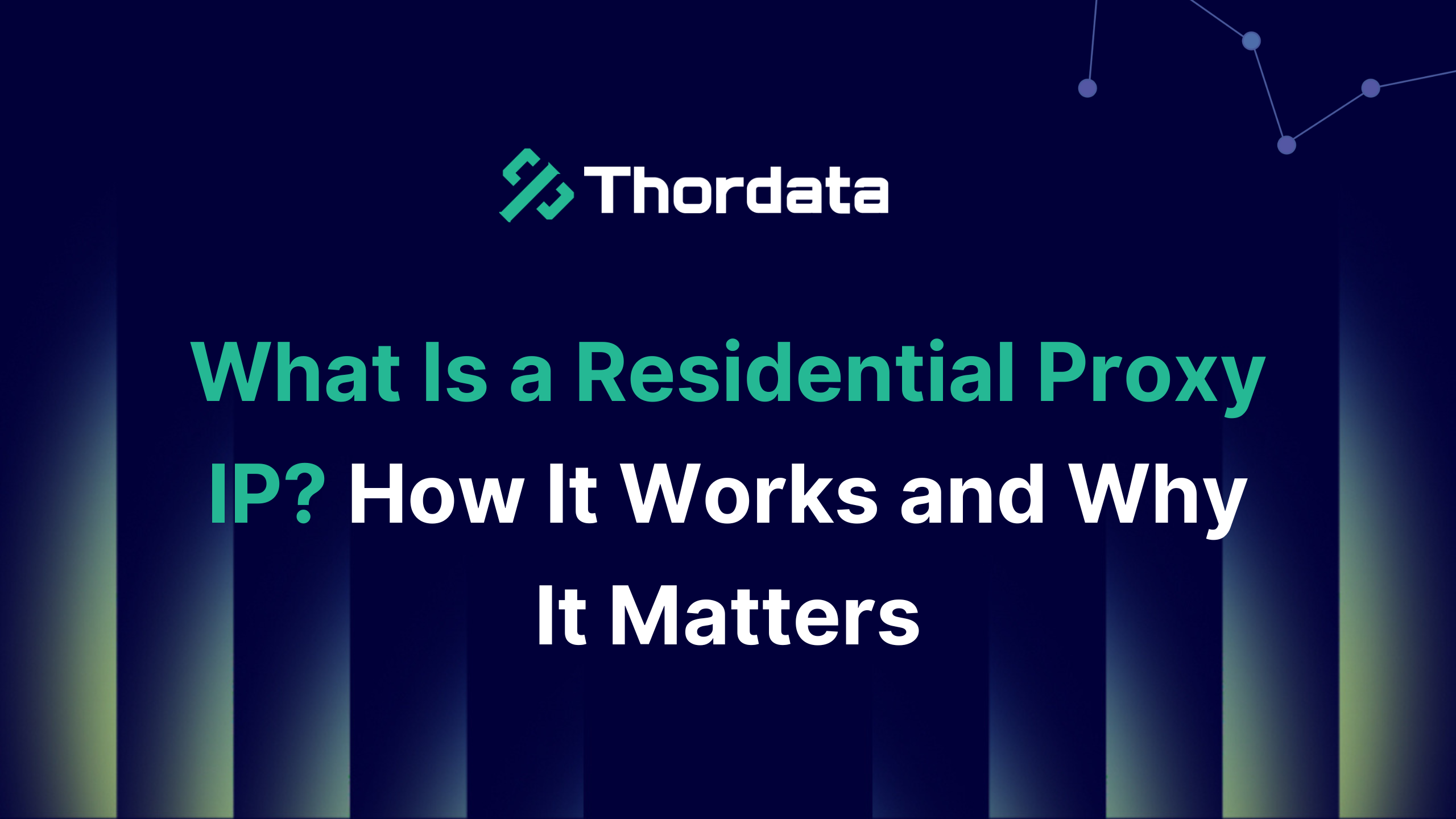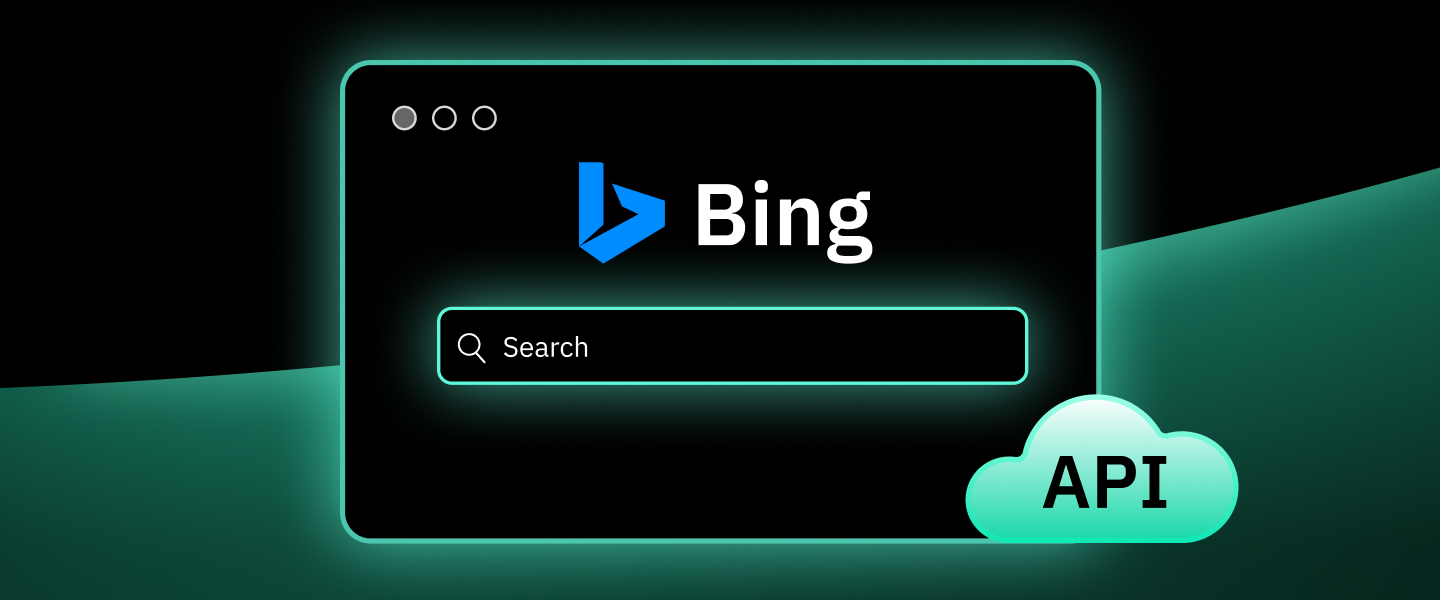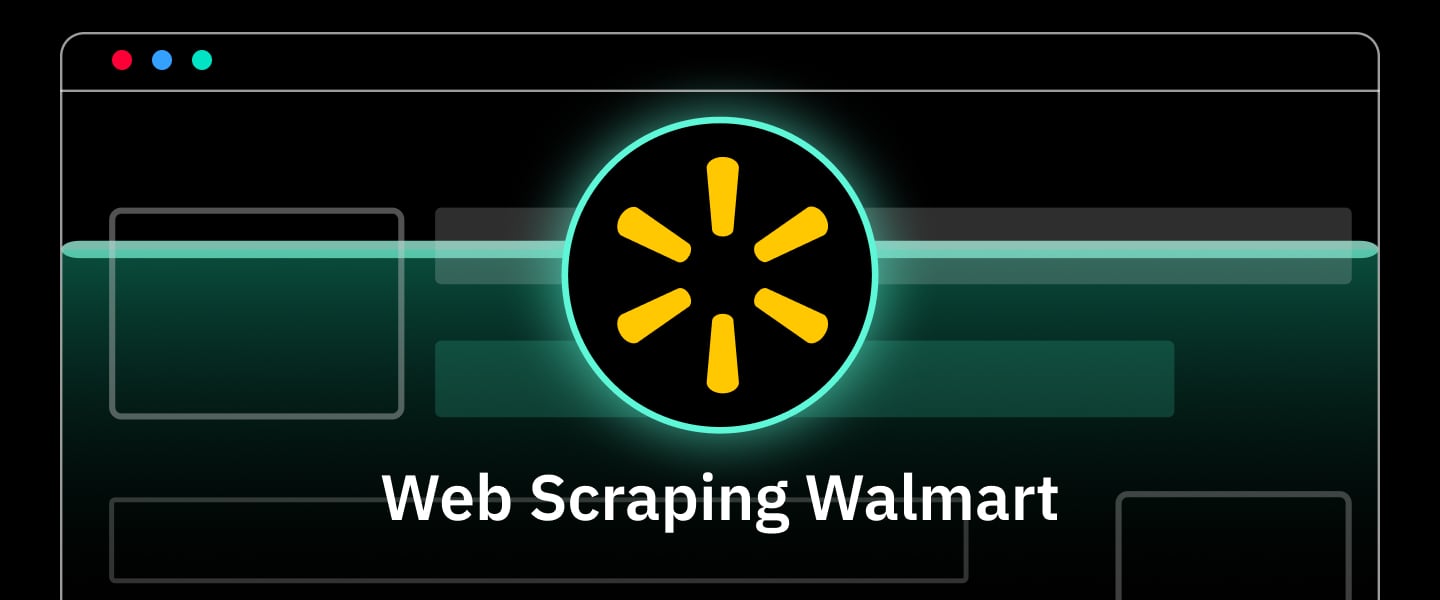Over 60 million real residential IPs from genuine users across 190+ countries.
Over 60 million real residential IPs from genuine users across 190+ countries.
Your First Plan is on Us!
Get 100% of your first residential proxy purchase back as wallet balance, up to $900.
PROXY SOLUTIONS
Over 60 million real residential IPs from genuine users across 190+ countries.
Reliable mobile data extraction, powered by real 4G/5G mobile IPs.
Guaranteed bandwidth — for reliable, large-scale data transfer.
For time-sensitive tasks, utilize residential IPs with unlimited bandwidth.
Fast and cost-efficient IPs optimized for large-scale scraping.
A powerful web data infrastructure built to power AI models, applications, and agents.
High-speed, low-latency proxies for uninterrupted video data scraping.
Extract video and metadata at scale, seamlessly integrate with cloud platforms and OSS.
6B original videos from 700M unique channels - built for LLM and multimodal model training.
Get accurate and in real-time results sourced from Google, Bing, and more.
Execute scripts in stealth browsers with full rendering and automation
No blocks, no CAPTCHAs—unlock websites seamlessly at scale.
Get instant access to ready-to-use datasets from popular domains.
PROXY PRICING
Full details on all features, parameters, and integrations, with code samples in every major language.
LEARNING HUB
ALL LOCATIONS Proxy Locations
TOOLS
RESELLER
Get up to 50%
Contact sales:partner@thordata.com
Proxies $/GB
Over 60 million real residential IPs from genuine users across 190+ countries.
Reliable mobile data extraction, powered by real 4G/5G mobile IPs.
For time-sensitive tasks, utilize residential IPs with unlimited bandwidth.
Fast and cost-efficient IPs optimized for large-scale scraping.
Guaranteed bandwidth — for reliable, large-scale data transfer.
Scrapers $/GB
Fetch real-time data from 100+ websites,No development or maintenance required.
Get real-time results from search engines. Only pay for successful responses.
Execute scripts in stealth browsers with full rendering and automation.
Bid farewell to CAPTCHAs and anti-scraping, scrape public sites effortlessly.
Dataset Marketplace Pre-collected data from 100+ domains.
Data for AI $/GB
A powerful web data infrastructure built to power AI models, applications, and agents.
High-speed, low-latency proxies for uninterrupted video data scraping.
Extract video and metadata at scale, seamlessly integrate with cloud platforms and OSS.
6B original videos from 700M unique channels - built for LLM and multimodal model training.
Pricing $0/GB
Starts from
Starts from
Starts from
Starts from
Starts from
Starts from
Starts from
Starts from
Docs $/GB
Full details on all features, parameters, and integrations, with code samples in every major language.
Resource $/GB
EN
首单免费!
首次购买住宅代理可获得100%返现至钱包余额,最高$900。
代理 $/GB
数据采集 $/GB
AI数据 $/GB
定价 $0/GB
产品文档
资源 $/GB
简体中文$/GB


In today’s digitally connected world, the need for online privacy, access, and control has never been greater. What exactly is a residential proxy IP? How does it work? And why is it so vital in the modern internet ecosystem?
This comprehensive SEO optimization guide will give you a thorough explanation of residential proxies – what they are, their inner workings, benefits, use cases, and how they compare to other types of proxies.
A residential proxy IP is an Internet Protocol (IP) address assigned by an Internet Service Provider (ISP) to a real physical device, such as a smartphone, desktop computer, or smart TV. These IPs represent real Internet users, so they are indistinguishable from regular web traffic.
When you use a residential proxy, your internet requests are routed through these real devices, which act as intermediaries between you and the target website. This makes it look like a legitimate user is visiting the website, rather than a bot or automated tool.
The core working principle of a residential proxy is to mask your actual IP address and replace it with the IP address of your residential network. The process usually goes like this:
1. Request routing: When you send a request to access a website, the proxy intercepts the request.
2. IP Replacement: The request is then forwarded using a residential IP from a different device and location.
3. Response delivery: The target website sends the response to the residential IP, which then forwards it back to you.
This multi-step process effectively anonymizes your activity, tricks anti-bot systems, and grants access to region-restricted content.
The Internet is increasingly protected by advanced security mechanisms designed to detect automated behavior and block suspicious traffic. Residential proxies have become a key tool to bypass these barriers.
Most websites have sophisticated systems deployed to detect and block non-human traffic. Datacenter proxies are often flagged due to their predictable behavior. However, residential IPs are similar to real users, which makes them perfect for accessing content undetected.
Want to see what users in Japan or Germany see on Google or Netflix? Residential proxies allow you to route your traffic through IPs located in a specific region, helping you bypass geographic restrictions and local firewalls.
Digital marketers use residential proxies to ensure their ads are displayed correctly in various regions and to detect click fraud or ad injection from unauthorized sources.
Businesses rely on residential proxies to ethically scrape data from e-commerce sites, travel aggregators, real estate platforms, and more, without being blocked or restricted.
Platforms like Instagram, YouTube, and LinkedIn quickly flag multiple logins from the same IP. Residential proxies allow marketers, influencers, and social media managers to securely manage multiple accounts.
When it comes to residential proxies, not all are created equal. There are two main types, each suited to different use cases and technical needs: rotating residential proxies and static residential proxies. Understanding the difference can help users choose the right tool for their specific goals — whether it’s web scraping, SEO monitoring, account management, or brand protection.
Rotating residential proxies automatically assign different IP addresses from a proxy pool for each request or after a specific time interval. These IP addresses come from real residential devices around the world.
Working principle:
Each HTTP/S request is routed through a different IP address.
The frequency of IP rotation can be customized (per request or every few minutes).
Rotation simulates natural user behavior, making it more difficult for the target website to detect the IP address.
Key benefits:
Ideal for large-scale web scraping and crawling
Helps bypass rate limits and captcha triggers
High anonymity due to variable IP addresses
Great for SERP tracking, ad verification, and product price monitoring
limitation:
Difficulty maintaining persistent sessions or logins
May affect the consistency of account management tasks
Best Use Cases:
Large-scale web crawling
SEO keyword ranking check
Tourism or e-commerce data aggregation
Cross-region advertising verification
Static residential proxies (also called “sticky” or “persistent” IPs) assign a fixed residential IP address that remains unchanged for a defined period of time (e.g., 1 day, 7 days, or 1 month) until manually switched. These IP addresses also come from real devices but are designed to maintain session continuity.
Working principle:
When a session starts, the system assigns a residential IP, which remains active until it expires or is released by the user.
Perfect for login-based workflows, multi-step navigation, or account actions.
Key benefits:
Session stability for logging in and managing multiple accounts
Reduce the risk of triggering platform security alerts
Great for checkout automation or QA testing
Easier to identify by fraud detection systems
limitation:
If abused, easier to detect than rotating proxies
It can still be blocked if overused on a single endpoint
Best Use Cases:
Social Media Account Management
Shopping cart or checkout automation
Conduct QA testing in different regions
Log in to the SaaS platform or trading platform
Dedicated residential proxies are dedicated IP addresses for a single user or device. This type of proxy service is usually provided by an Internet Service Provider (ISP) to ensure that the user can keep the same IP address when using it without sharing it with other users. This type of proxy has high stability and reliability and is suitable for users who need to frequently access specific websites or services.
Residential proxies and data center proxies are two common types of proxies, which differ significantly in terms of IP source, anonymity, usage scenarios, and price.
Source: Residential proxies have IP addresses that come from real users’ home devices and are assigned by Internet Service Providers (ISPs), whereas datacenter proxies come from servers in data centers, usually provided by cloud service providers.
Anonymity: Residential proxies provide higher anonymity and security and are suitable for scenarios that require high privacy protection, such as web crawlers, market research, etc.
Datacenter proxies are faster, they have lower anonymity because their IP addresses are easily detected and blocked, making them suitable for general web browsing and data crawling.
Price: Because residential proxies are obtained from real users who are more complex and require maintenance, they are usually more expensive; in contrast, data center proxies have lower maintenance costs and are easy to obtain, so they are relatively cheap. For example, Thordata’s residential proxy costs $9 for 5 GB, while a dedicated datacenter proxy costs only $0.75/IP for 7 days.
While residential proxies offer numerous advantages, they also come with some responsibilities:
Cost: Premium residential proxies are more expensive.
Legality: Make sure your provider acquires IP addresses ethically and with user consent.
Speed: Since routing needs to be done through real equipment, speeds are generally slower than datacenter proxies.
Privacy: Choose a provider with a strong privacy policy to avoid abuse.
When choosing a residential proxy provider, consider the following:
1. IP pool size and diversity: The more IP addresses, the higher the anonymity.
2. Precise geo-targeting: City- or ISP-level targeting can enhance use case flexibility.
3. Rotation Controls: Look for options like sticky sessions or rotating IP addresses.
4. Compliance and transparency: Ethical sourcing and GDPR compliance are a must.
5. Support and control panel tools: A good user interface and responsive support improve usability.
In an increasingly restrictive internet environment, residential proxies provide unparalleled authenticity and access. By leveraging real user IPs, they enable individuals and organizations to efficiently and ethically gather information, test services, and manage platforms.
Thordata has established ethical and transparency standards for residential agency acquisitions and offers a three-day free trial. Simply contact your account manager to get one.
Frequently asked questions
What is a Residential IP?
Residential IP is a real IP address assigned by Internet Service Provider (ISP) to home user devices (such as routers, computers, and mobile phones). This type of IP has geographic location and operator information, represents the identity of the “real user”, and therefore has a very high degree of credibility in the Internet environment.
What is a residential IP proxy good for?
Residential IP proxies are widely used in network operations that require high anonymity and real user identity, such as:
Bypass geo-restrictions to access global content
Scrape web data to avoid triggering blockades
Verify the effectiveness of cross-region advertising
Manage multiple social media accounts to prevent being blocked
Analyze global search engine results (SEO monitoring)
Protect brands from ad fraud or content phishing threats.
Are residential proxies illegal?
Residential proxies are not illegal in themselves, provided they are sourced legally and used for legitimate purposes.
Trusted residential proxy service providers will obtain authorization from real users (usually through an app or a partner network) and follow laws and regulations on data privacy and network use. If they are used for cyber attacks, data theft, or fraud, they are illegal. Therefore, the key is to choose a legitimate provider and use it properly.
About the author

Yulia is a dynamic content manager with extensive experience in social media, project management, and SEO content marketing. She is passionate about exploring new trends in technology and cybersecurity, especially in data privacy and encryption. In her free time, she enjoys relaxing with yoga and trying new dishes.
The thordata Blog offers all its content in its original form and solely for informational intent. We do not offer any guarantees regarding the information found on the thordata Blog or any external sites that it may direct you to. It is essential that you seek legal counsel and thoroughly examine the specific terms of service of any website before engaging in any scraping endeavors, or obtain a scraping permit if required.
 Looking for
Top-Tier Residential Proxies?
Looking for
Top-Tier Residential Proxies? 您在寻找顶级高质量的住宅代理吗?
您在寻找顶级高质量的住宅代理吗?
Web Scraping eCommerce Websites with Python: Step-by-Step
This article provides a detail ...
Yulia Taylor
2026-01-29

10 Best Web Scraping Tools in 2026: Prices and Rankings
In this article, discover the ...
Anna Stankevičiūtė
2026-01-29

Best Bing Search API Alternatives List
Discover the best alternatives ...
Anna Stankevičiūtė
2026-01-27

The Ultimate Guide to Web Scraping Walmart in 2026
Learn how to master web scrapi ...
Jenny Avery
2026-01-24

Concurrency vs. Parallelism: Core Differences
This article explores concurre ...
Anna Stankevičiūtė
2026-01-24

Best Real Estate Web Scraper Tools in 2026
Learn about the leading real e ...
Anna Stankevičiūtė
2026-01-23

Playwright Web Scraping in 2026
Learn how to master Playwright ...
Jenny Avery
2026-01-22

Top 5 Wikipedia Scraper APIs for 2026
In this article, we will help ...
Anna Stankevičiūtė
2026-01-19

Puppeteer vs Selenium: Speed, Stealth, Detection Benchmark
Benchmark comparing Puppeteer ...
Kael Odin
2026-01-14